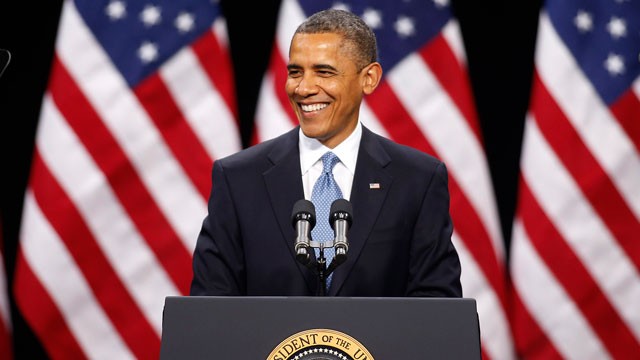As President Barack Obama stepped up efforts to sell his plan to militarily strike Syria for its alleged use of chemical weapons, he won crucial support from key Congressional leaders of both Democratic and Republican parties.
As President Barack Obama stepped up efforts to sell his plan to militarily strike Syria for its alleged use of chemical weapons, he won crucial support from key Congressional leaders of both Democratic and Republican parties.
Keeping up intense lobbying efforts, Obama on Tuesday first met Congressional leaders, including John A. Boehner, speaker of the Republican controlled House, and then sent two senior cabinet ministers to Capitol Hill to make his case before the Senate Foreign Relations Committee.
After meeting Obama in the Oval Office along with Democratic Senate majority leader Harry Reid, and Democratic House minority leader Nancy Pelosi among others, Boehner said he would “support the president’s call to action”. But with vocal factions in both parties opposed to getting involved in another messy war, there is still no guarantee that the Congress would approve military action in Syria when it returns from its summer break Sep 9 despite support from top party leaders.
Meanwhile, Democrats and Republicans on the Senate Foreign Relations Committee are reported to have agreed on a resolution that would give Obama authority to carry out a strike against Syria, for a period of 60 days, with one 30-day extension. It also makes clear there would be no US boots on the ground.
“With this agreement, we are one step closer to granting the President the authority to act in our national security interest,” Foreign Relations Chairman Robert Menendez said.
Obama later left for St. Petersburg, Russia, to attend the G-20 summit, where too he would try to win international support for punitive strikes against Syria.
The Senate panel will Wednesday take up a bipartisan bill authorising the use of force in Syria that was revised to address some of the concerns expressed during Tuesday’s hearing.
Secretary of State John Kerry, Defence Secretary Chuck Hagel and Gen. Martin Dempsey, the chairman of the Joint Chiefs of Staff, faced tough questions from members of the Senate panel.
Kerry said Obama isn’t asking the United States to go to war-just “to degrade and deter” the capacity of Syrian President Bashar al-Assad to launch another chemical attack.
Hagel said any military action “would be limited in duration and scope,” and won’t be aimed at settling the Syrian civil war by force. He testified that the administration’s proposal would not authorise strikes outside Syria, against any other government or against non-state groups.
Asked whether any strike on Syria aimed at degrading the government’s ability to launch a chemical weapons attack and deter the future use of those poisons, would also diminish to some broader extent the Assad military’s abilities, Dempsey said: “Yes.”
At the United Nations Secretary-General Ban Ki-moon called on Security Council members to unite and develop an appropriate response should allegations regarding the use of such weapons prove true.
The issue is larger than the conflict in Syria, “this is about our collective responsibility to mankind,” he told reporters, but also appealed that any decision that is made is done so within the framework of the UN Charter.
“I take note of the argument for action to prevent future uses of chemical weapons,” the UN chief said. “At the same time, we must consider the impact of any punitive measure on efforts to prevent further bloodshed and facilitate a political resolution of the conflict.”
The use of force is lawful only when in exercise of self-defence in accordance with Article 51 of the United Nations Charter and/or when the Security Council approves such action, said Ban.
-IANS





